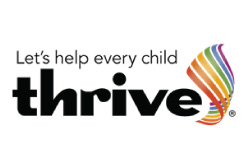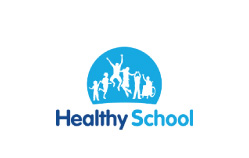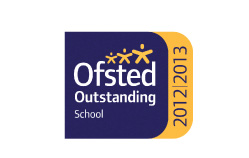At Stanhope Barrington C of E Primary School looking after emotional wellbeing in our school community is central to our ethos. Building strong, positive relationships within our school community is part of our strategy to address wellbeing. We support wellbeing through Thrive, Mental Health First Aiders, Happiness Heroes pupil voice group, a designated Senior Mental Health lead and the Staff Well-being Charter.
Consistency of approach in the language we use around wellbeing is important to ensure clear communication within our community. Enhancing emotional literacy is vital in our approach to supporting mental health and wellbeing. We have included a Glossary to support parents and carers at home to use the same language.
Wellbeing and Mental Health in school
Thrive

Thrive is a systematic approach to the early identification of emotional developmental need in children and young people. This approach helps children and young people feel safe, supported and ready to learn while becoming emotionally resilient. It also provides a toolkit for emotional and behavioural regulation and helps to empower children to build positive relationships to develop and sustain health, social and emotional well-being. Thrive strengthens links with parents and carers to ensure there is a joined-up approach to supporting children and young people’s emotional and social needs.
Here is our Thrive area in school that is a safe space where children and staff can go to manage their emotions with the support of a Thrive practitioner.
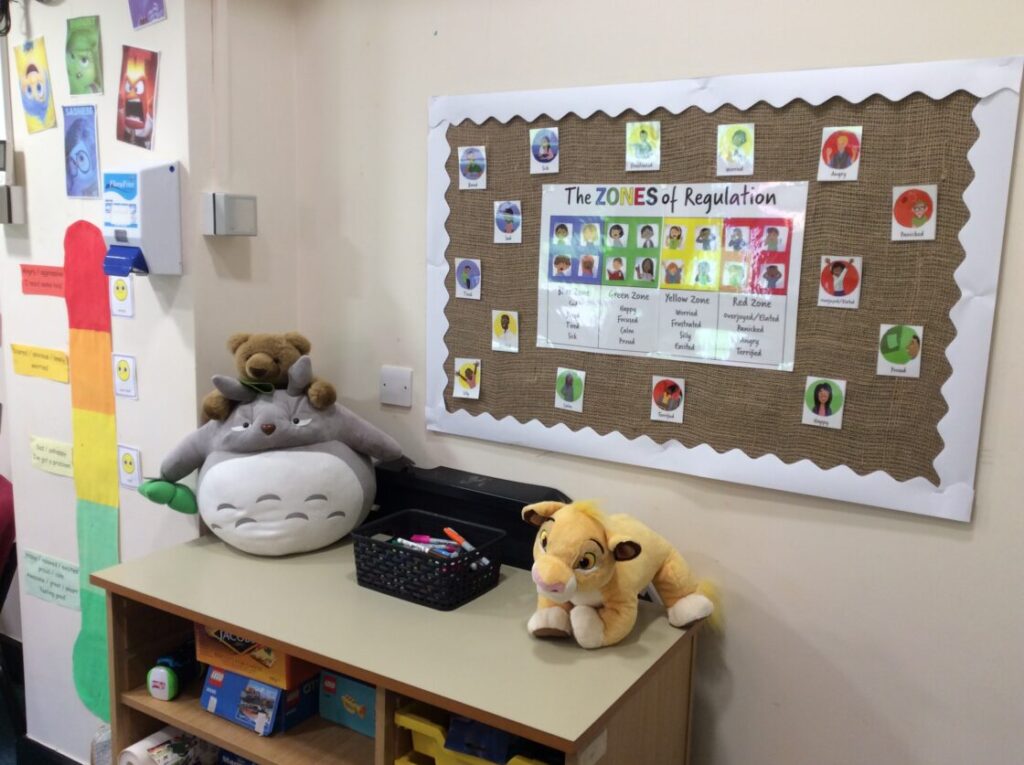
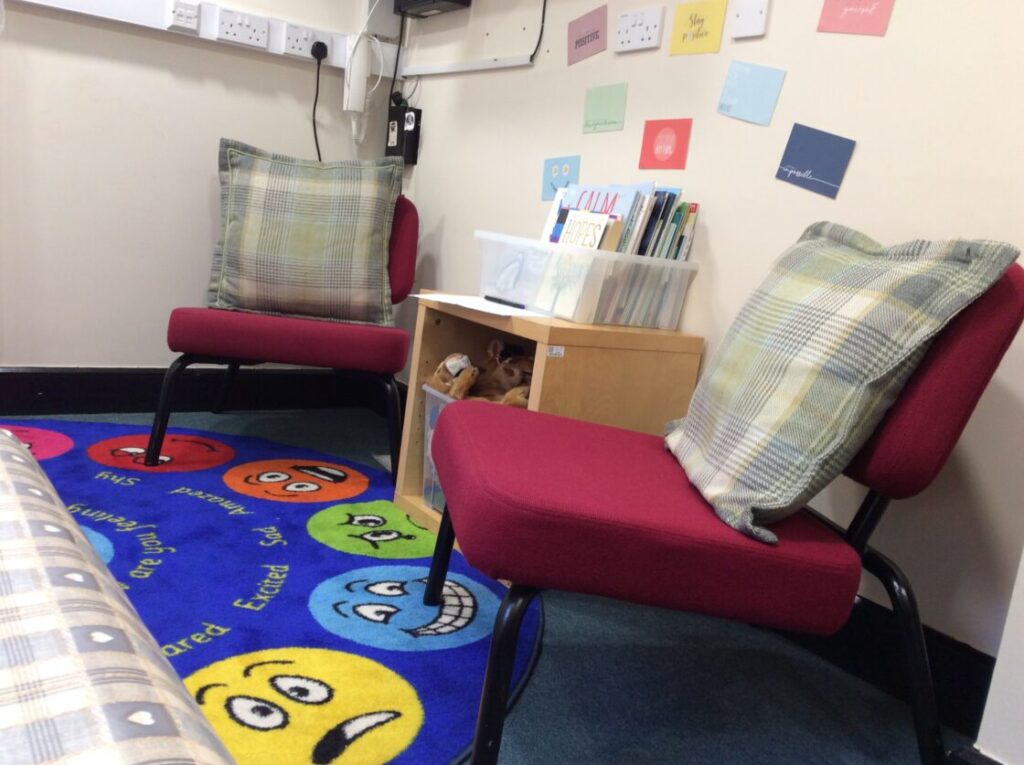
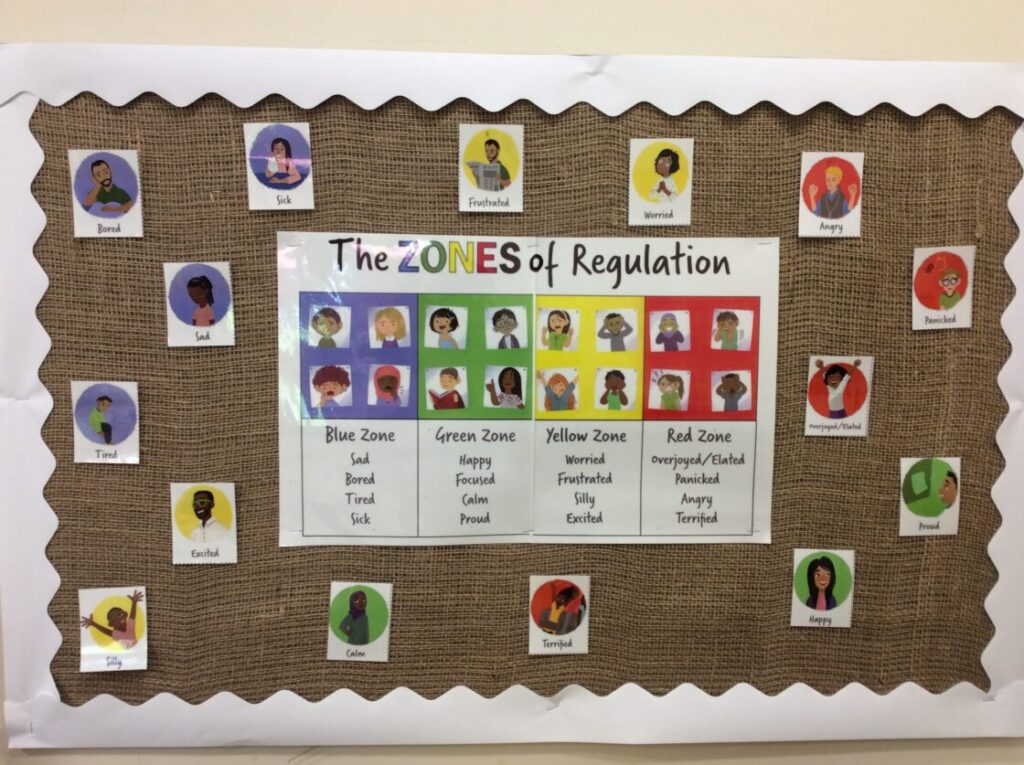
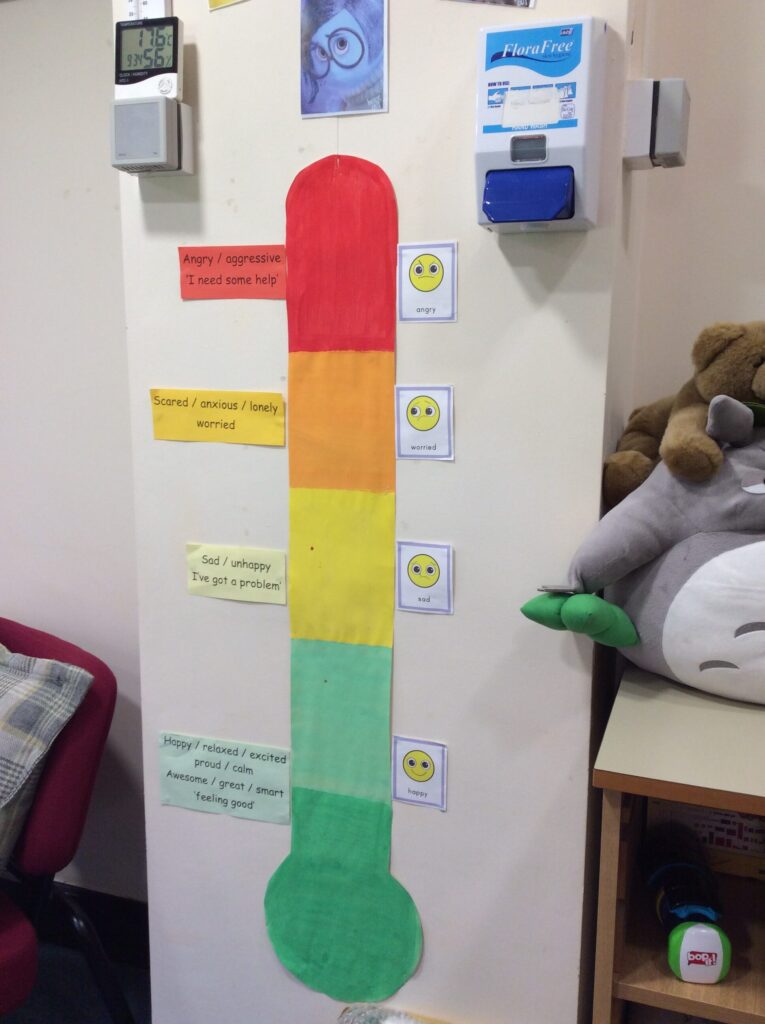
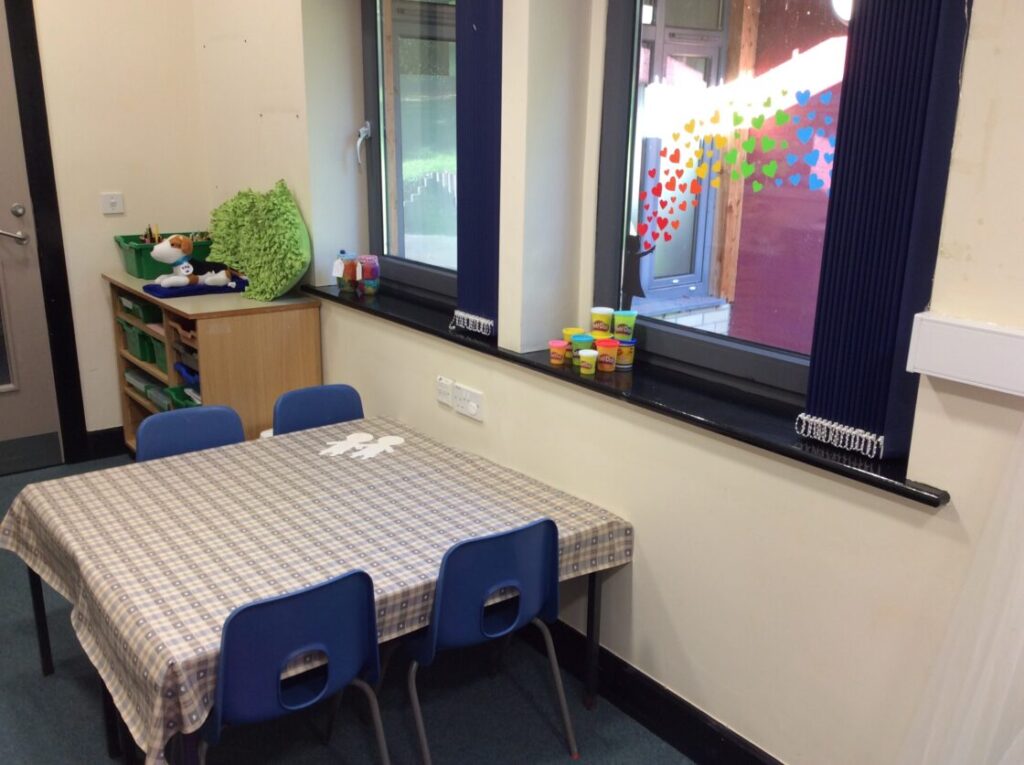
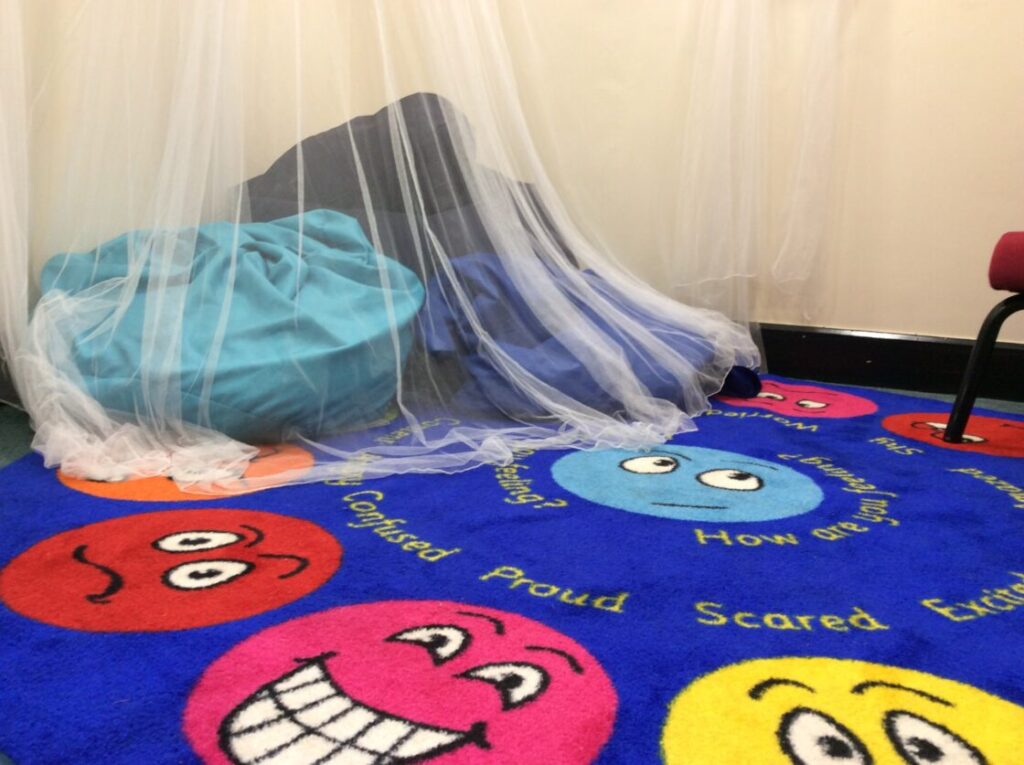
Mrs. A. Parvin and Mrs. C. Heslop-Stead are our highly trained Thrive Practitioners delivering this dynamic approach.
Find out more about the Thrive Approach.
Mental Health First Aiders
We all have mental health and just like our physical health, it needs looking after. Mental Health First Aiders are trained to recognise metal ill health and to help people find the support they need. Mental Health First Aiders use their skills most effectively when there is support from our school community. Together, we can make a positive change to conversations around mental health.
What is mental health?
The World Health Organisation defines mental health as a state of mental wellbeing that enables people to cope with the stresses of life, realise their abilities, learn well and work well, and contribute to their community. It is an integral component of health and wellbeing that underpins our individual and collective abilities to make decisions, build relationships and shape the world we live in. Mental health is a basic human right. And it is crucial to personal, community and socio-economic development.
Mental Health First Aiders use ALGEE in their approach:
- A – Approach, assess, assist
- L – Listen and communicate non-judgmentally
- G – Give support and information
- E – Encourage professional help
- E – Encourage other support
At Stanhope Barrington C of E Primary School, or Mental Health First Aiders are: Mrs. C. Heslop-Stead, Mrs. A. Parvin and Ms. S. Ingwersen.
Senior Mental Health Lead
Content will be added soon…
Happiness Heroes
Happiness Heroes is our Pupil Voice group that works with our Thrive Practitioners and Adult Mental Health First Aiders to support children who may be unhappy or have worries in school. They are the first point of contact for children at playtimes and lunchtimes who may just need someone to talk to or play with. Find our more about our Happiness Heroes 2022-2023.
Zones of Regulation
Across school every member of the team wears cards which we refer to as the Zones of Regulation. The team have all had training on using this system of managing well-being and on Feel Good Friday we held a whole school assembly to relaunch it again with the children.
Children and adults are asked which zone they are in and the coloured zones reflect the following feelings and emotions:
The Blue Zone – sad, unhappy, bored, fed-up or unwell
The Green Zone – happy, calm, relaxed and focussed
The Yellow Zone – excited, silly, worried or unsure
The Red Zone – angry, frustrated, scared or annoyed
Staff role model by discussing with children which zone they are in and why. As the system is embedded children are becoming more able to describe their own feelings and emotions in terms of which zone they are in.
The Zones of Regulation are also used to talk about how we can move ourselves from the blue zone to the green zone for example. This helps the children to develop resilience and life-long coping strategies.

Staff Wellbeing Charter
Everyone working in education should have the opportunity to enjoy the highest possible standard of wellbeing and mental health. Improved wellbeing among staff is a key outcome for delivering a high standard of education for our children. Our staff are a precious resource: valuing them, and their wellbeing and mental health, is a duty we all share. As a school, we have signed up to the Education Workforce Wellbeing Charter to ensure that the wellbeing of our staff is a priority.
Emotional Wellbeing – DfE_Education Workforce Wellbeing Charter
Support Resources
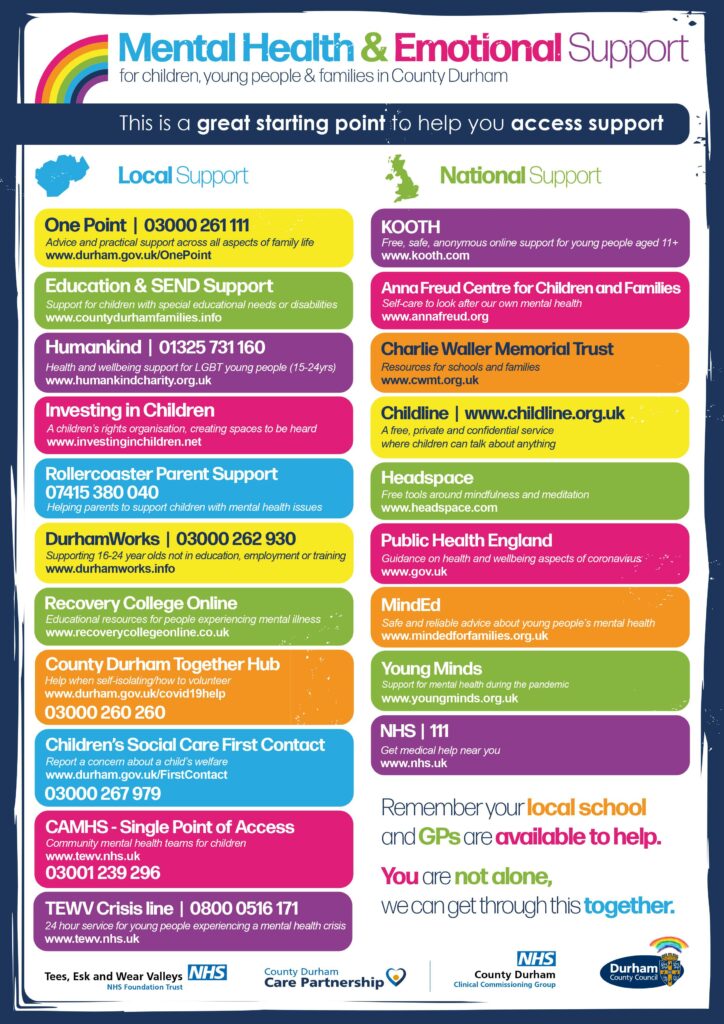
Family Support – Resources
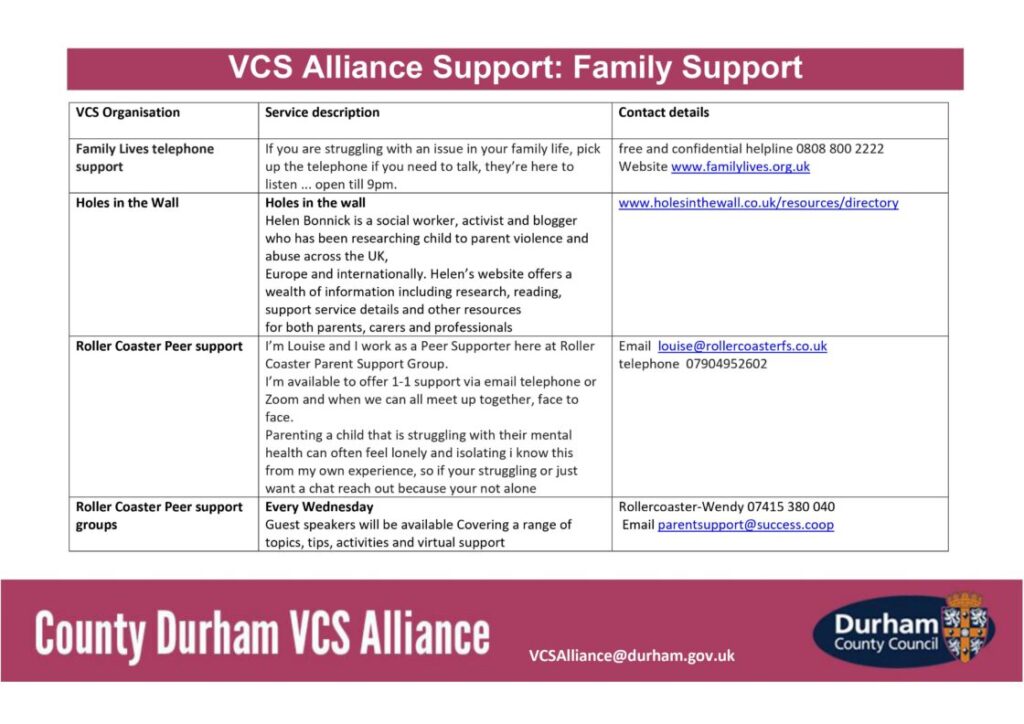
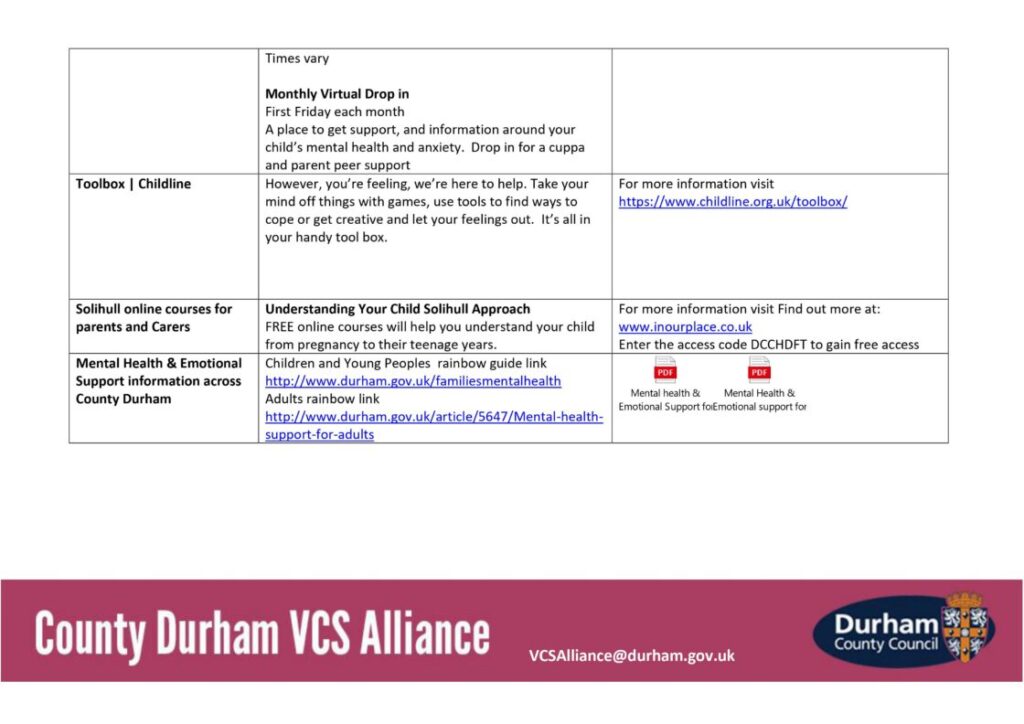
Click on Family Support to access the live links.
Durham Young Dads
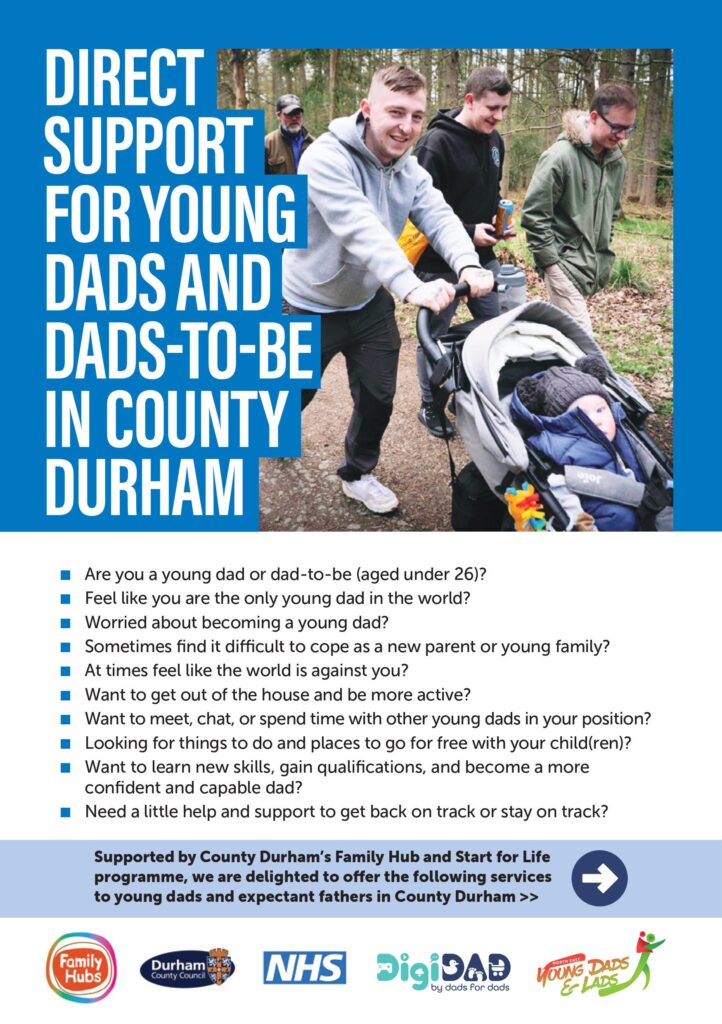
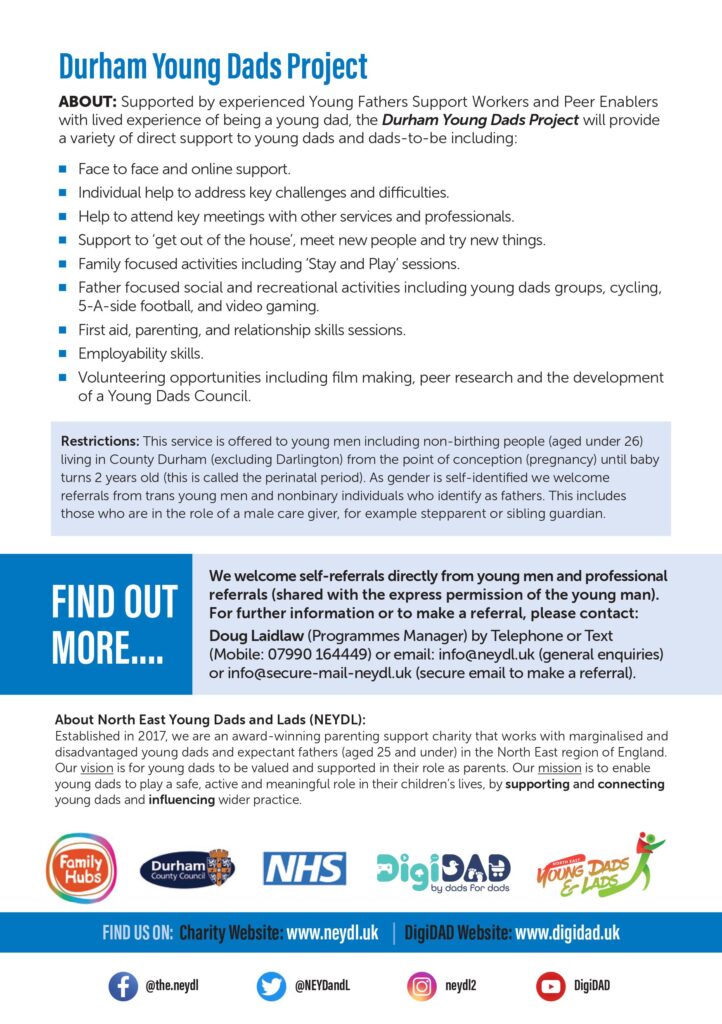
2022-2023
Children’s Mental Health Week – This week in school we have been celebrating Mental Health Week. The year the theme is Anxiety. During collective worship we introduced the anxiety gremlin, how he makes us feel and what we can do to help ourselves and each other.
The younger children began the week by hunting for the anxiety gremlin and drawing a picture of him (once he was found). During Character development lessons the children explored different ways of starving the anxiety gremlin.
The children can recognise how anxiety makes us feel and how we can help ourselves.
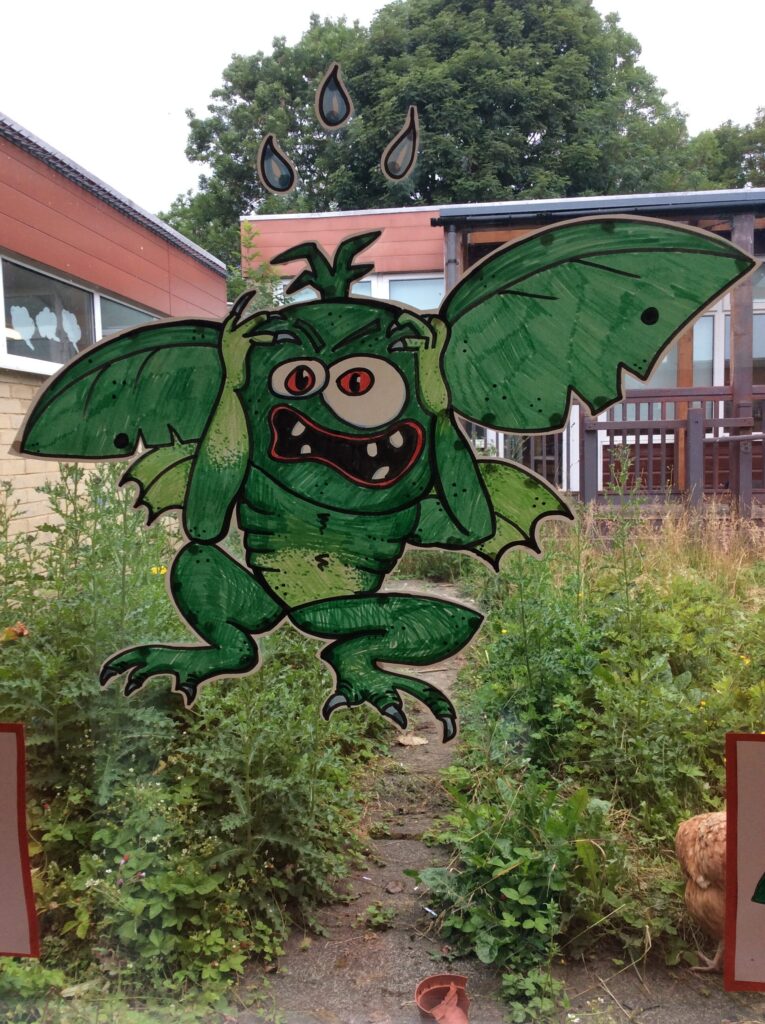
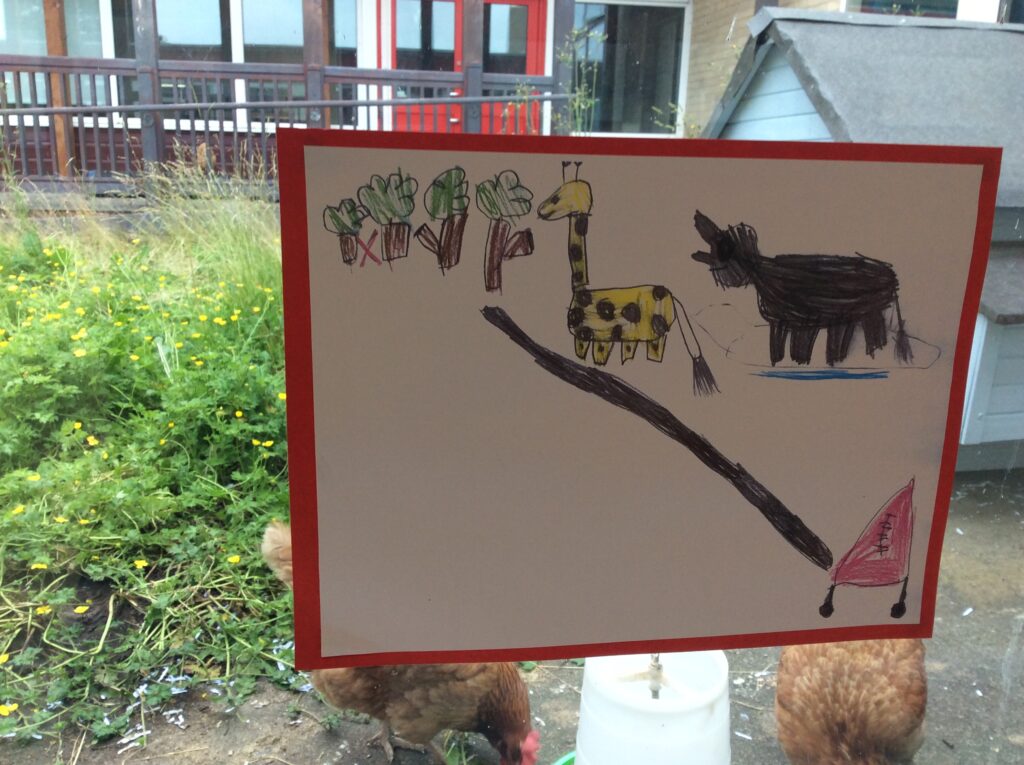
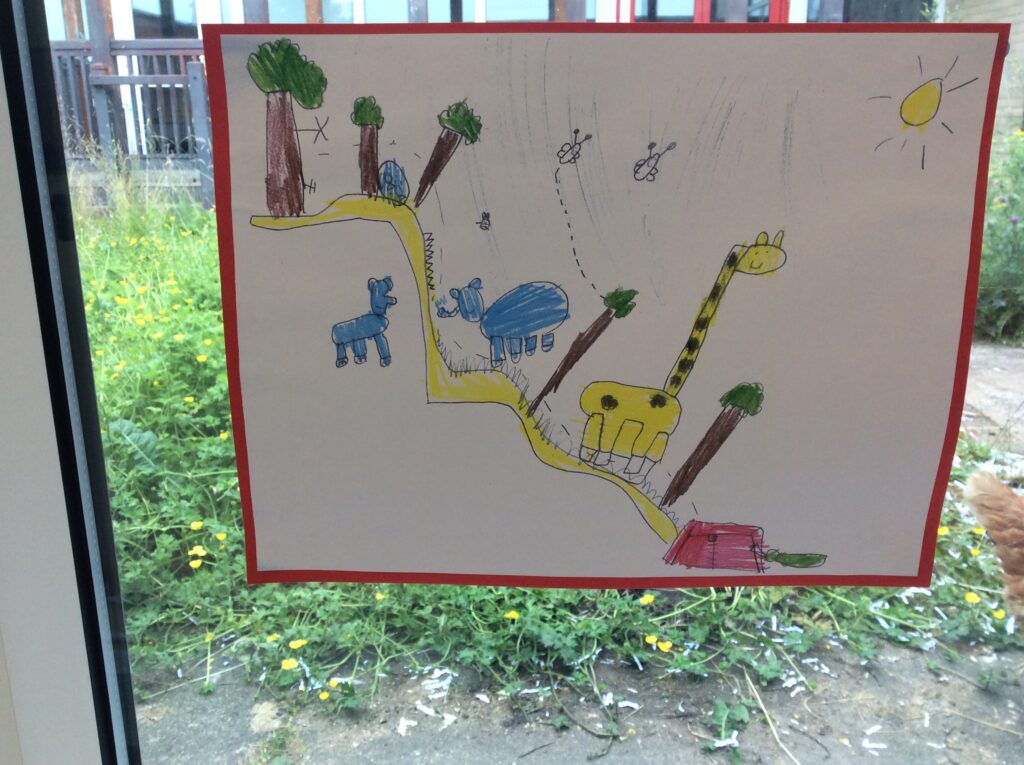
Mental Health Awareness Week – 15 May – 21 May 2023: ANXIETY – This year the theme for Mental Health Awareness Week is ANXIETY. To find out more please visit the Mental Health Foundation website and the Mental Health UK website.
Mental Health Awareness Week 2023 – Letter
Signs of Anxiety in Children and Young People
- Finding it difficult to concentrate
- Not sleeping, or waking in the night with bad dreams
- Not eating properly
- Quickly getting angry or irritable
- Constantly worrying or having negative thoughts
- Feeling tense and fidgety or using the toilet often
- Always crying
- Being clingy
- Complaining of stomach aches or feeling unwell
Anxiety Resources
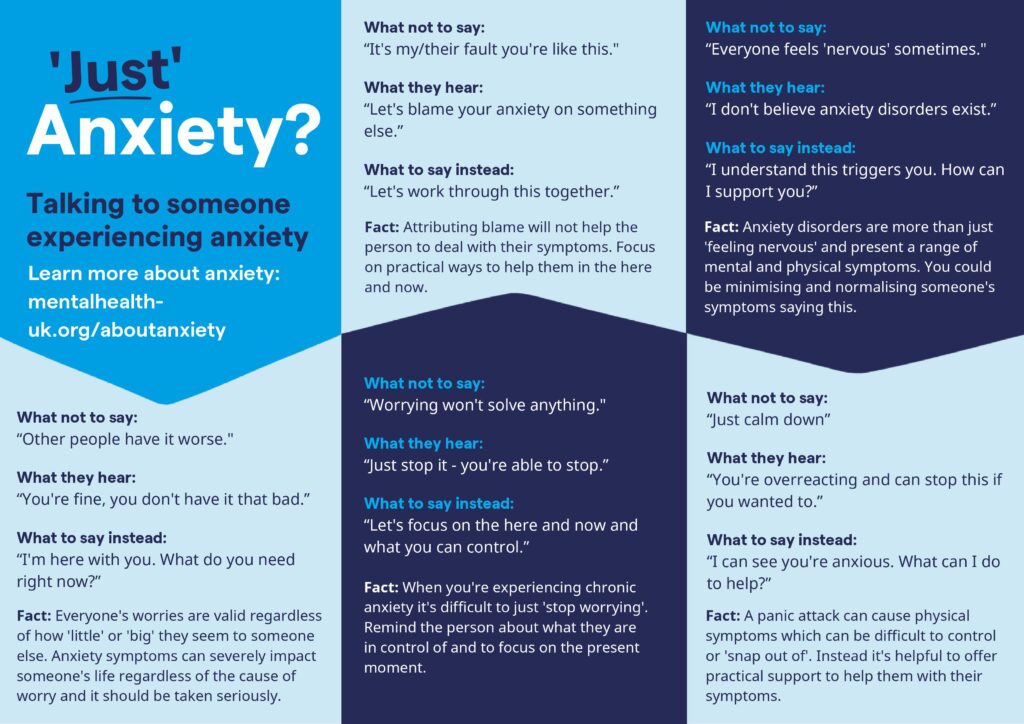
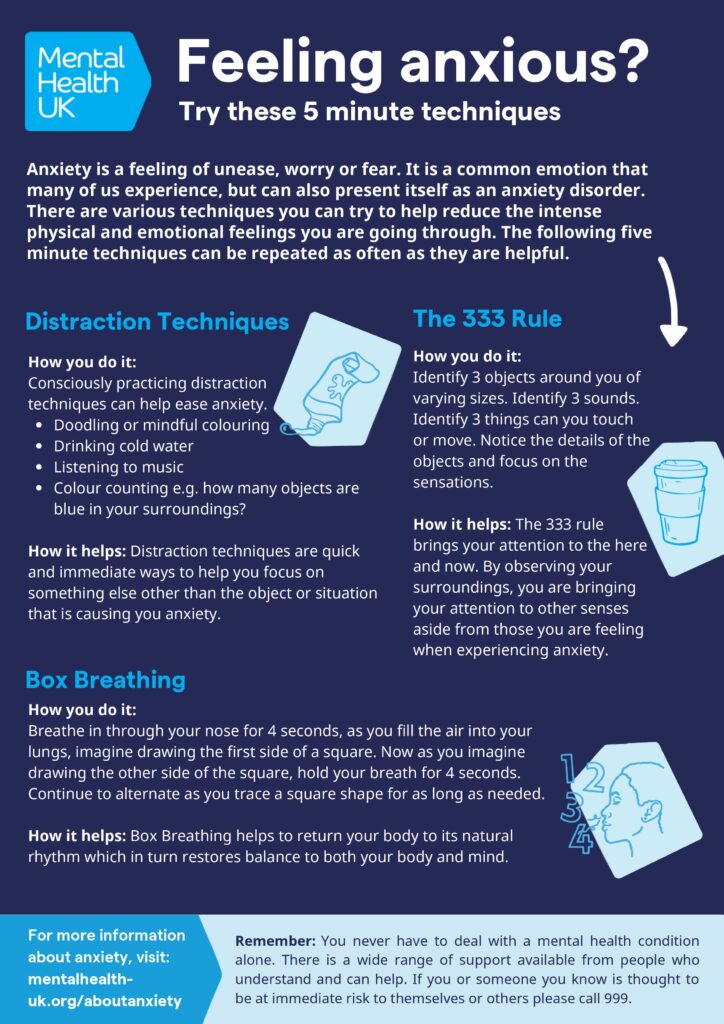
- ‘Just’ Anxiety?
- 10 Minute Techniques
- 5 Minute Techniques
- Talking to someone experiencing anxiety
- More Techniques
- Tips for Talking
Archived Information
You can view archived Emotional Wellbeing information on our website.



